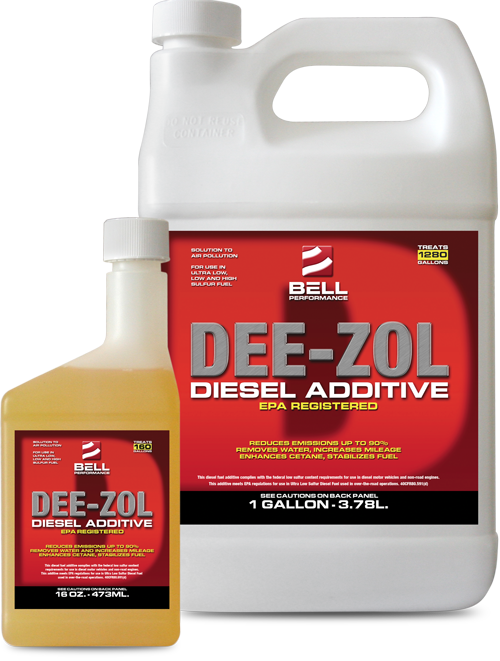Oil Additives For Diesel Engines - Are They Worth It?
The finished engine oils you buy aren't just petroleum oil pulled out of the ground and slapped into a bottle. They are an engineered combination of...
Auto parts stores have shelves lined with oil treatment bottles, each with promises of being liquid gold in a bottle. But you've got a diesel engine, not a gas engine. Is there anything you really need for your diesel engine oil?
First, let's talk about the difference between the oil you put in your diesel engine vs. what you put in your regular gas-powered car. One thing they have in common is there's no difference in the base oil. Both kinds of oil start out with the same basic lube oil base, coming from the same barrel of crude oil. Then the oil has certain things added to it to improve vital properties. The goal is to end up with an oil formulated to meet a given API Service Category. And this is the first thing to pay attention to when selecting an oil for your diesel engine - the Service Category. You'll find it in the circular label on the bottle that also contains the SAE viscosity rating (i.e. SAE 5w30).
These Service Categories get updated every few years and are a result of the industry getting together and coming to an agreement on how oils need to be updated in order to continue to keep up with the latest engine technology and to provide the best protection for today's engines.
Both gas and diesel have their own service categories. For gasoline engines, SP is the most current designation for the best protection since about 2020. From 2011 to 2020, it was SN, and before that (2004-2011), it was SM. You notice the pattern there - when they update the Category, they just switch to the next letter.
For those with classic cars, often they will use SA or SB oils, which are base oils that don't contain detergency. They know putting a "modern" oil like an SP might do some things in their old engine that they don't want - it might degrade their old seals, the viscosity of the oil might not work well with the older engine, and it might not have the zinc or phosphorus levels that older engines like. Conversely, while they want those old-school oils for their classic cars, they wouldn't put them in their modern vehicles because they wouldn't provide the needed protection for the modern engine.
For diesel engines, CK-4 (introduced in 2016) is the most current classification you want to use. CK-4 is an improvement over CJ-4 because it improved the shear stability (it holds up better over long periods of stress), oxidation resistance (it resists the degrading effects of oxygen), and aeration control. Before that, you had the older CI-4 and CH-4 oils, but those two older classes are intended only for older diesel engines that meet 1998 or 2004 emissions standards. CK-4 oil is the most up-to-date oil classification. It is engineered to provide the best protection for the diesel engine while maintaining and protecting the integrity of the important emissions systems that are paired with the engine.
In December 2016, they did something else with diesel oil, too. They introduced a new service category called FA-4. The F in the category is supposed to designate that this is a new line of diesel oils specially formulated for next-gen diesel engines to provide improved fuel economy and reduced emissions.
All engine oils, gas or diesel, have combinations of additives added to them. What kind of additives do they put in these diesel engine oils?
All modern oils have specific classes of additives that come standard in anything you're going to use. Detergents have been used oils since the 1930s to clean and remove the harmful sludge components that otherwise would build up and cause harm to engine surfaces. Metal deactivators are also used in a similar fashion - they protect metal surfaces from being rusted or oxidized by the oil film. These work in conjunction with antioxidants to reduce corrosion inside the engine. And dispersants work to keep contaminants like soot from sticking together and damaging engine surfaces.
Beyond these essential additives, all modern oils contain viscosity modifiers to make sure the oil retains its protective viscosity over the broadest range of temperature conditions in the engine. Antiwear or extreme pressure additives (like ZDDP) work to strengthen the oil's protective abilities under the more extreme conditions encountered during the life of the engine.
So these are all common and universal types of additives found in most oils that you will buy. The oils are formulated to provide a given level of protection. That's not to say that these additives don't get used up over time. In fact, part of the reason you have to change diesel oil at given intervals is because these additives lose their effectiveness after a certain period of time.
So, given that these additives are present in diesel oil, is there a need for a specific diesel oil additive? Not really. If you're using a good CJ-4, you can supplement it with an additive that boosts the oil's ability to, for example, maintain extreme pressure protection. Or supplement the anti-acid and anti-oxidant abilities of the oil. But there's no need for a diesel-specific oil additive.
The finished engine oils you buy aren't just petroleum oil pulled out of the ground and slapped into a bottle. They are an engineered combination of...
Did you know that while the engine oils for gasoline and diesel engines may seem identical at a glance, their unique demands paint a different story?"

Diesel fuel has changed dramatically over the last ten years. It doesn’t behave like it used to. It’s storage life is significantly lower than it...